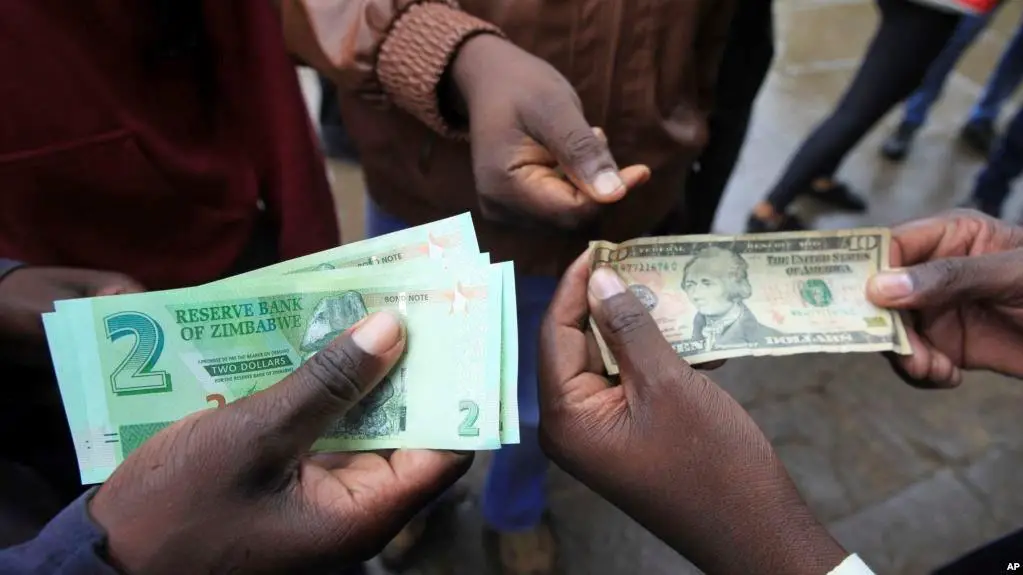- Zimbabwe currency issues are at the heart of more significant problems
- The unstable currency has hurt confidence in the economy with essential commodities going up by 20%
- The past 20 years have seen Zimbabwe grappling with an unstable currency which has hurt confidence in the economy
Weakened economy
The Zimbabwe economy is going through turbulent waters, seeing consumers feeling the squeeze.
Currency issues are at the heart of more significant problems, seeing essential commodities go up by 20%. Staples such as bread, cooking oil, and sugar, which the general public depend upon have become expensive. This has led to consumer watch groups debating if the Zimbabwean currency ZWL is still fit for purpose.
Read: Burundi new forex laws hurt traders
The past 20 years have seen Zimbabwe grappling with an unstable currency which has hurt confidence in the economy. 2008 witnessed the height of the currency problems with triple-digit inflation, and consumers fear those days could come back.
The nightmare of the 2008 economic collapse still lives rent-free in Zimbabweans minds. The prices of essential commodities could go up while one was in the queue to buy them. The turbulence witnessed during this era was that some retailers had to fold.
If you received your salary on the 1st of January in ZWL, you would struggle to pay for goods and services in February. This volatile situation results in consumers seeing value eroded from their bank balances at an astonishing rate.
We see wages struggle to keep up with inflation, a phenomenon similar to 2008. Most people buy USD from the black market to retain some semblance of value in these balances.
Zimbabwe has a currency crisis, and the Authorities seem to be struggling to deal with it. The rate at which the Zimbabwe dollar is depreciating signifies the state of the economy. Much of this is being blamed on the countries foreign currency auction system.
The industry is supposed to bid for foreign currency used to import goods. However, the sheer demand outstrips supply, and most companies buy the bulk of their forex on the black market. This has an adverse effect of pushing that black-market rate we talked about earlier.
The auction system is open for abuse. The few companies that get allocations to price their products at black market rates pocket the difference. The average price of the forex sold on the auction system is the official exchange rate. This rate has gone up from US$ 1: ZWL 108.66 to $116.65 in the space of a month.
These are clear signs of turbulence ahead for the Zimbabwean economy, and consumers’ are between a rock and a hard place. Which leads us to the question, why is the government still pushing on with the ZWL?
If the government has no confidence in its currency, what hope is there for the ordinary person on the streets? You couldn’t make this up. Citizens have to pay for passports (US$120) and other services in forex. This has led many to question the competence of those running treasury.
How much forex is in the market?
According to the treasury, the total foreign currency receipts at the end of 2021 stood at $9.7 billion. There is an estimated $1.5 billion of notes in circulation. While $ 1.7 billion is in the banking sector. The central bank is sitting on $1.2 billion worth of reserves.
If these figures are accurate, Zimbabwe has enough foreign currency to switch from the ZWL to the US dollar.
Governments Argument against Dollarization
A strong currency will make goods and services more expensive and hurt exports. The government has intended to revive the local industry, which crumbled under years of harsh operating conditions.
This argument is not convincing, though; economists claim the country is not ready for its currency. The economics only mirror the state of the politics in the Southern African nation and will hurt the ordinary person on the streets.
One thing is certain, though, the current situation is unsustainable, and with elections looming in 2023, something has to give. The market has no confidence in an unstable currency whose value fluctuates on a minute-by-minute basis.
It is so bad that even the government does not trust the Zim dollar. This is the main reason it is pegging pegged local tenders for its services to the parallel market exchange rate. Incomes are depreciating, costs are skyrocketing, people are going hungry in their homes, and companies are demanding US dollars or offering significant discounts; therefore, the ZWL could be on its way out.
Read: South Africa’s rand steady as China dissolves virus trouble with rate cut
